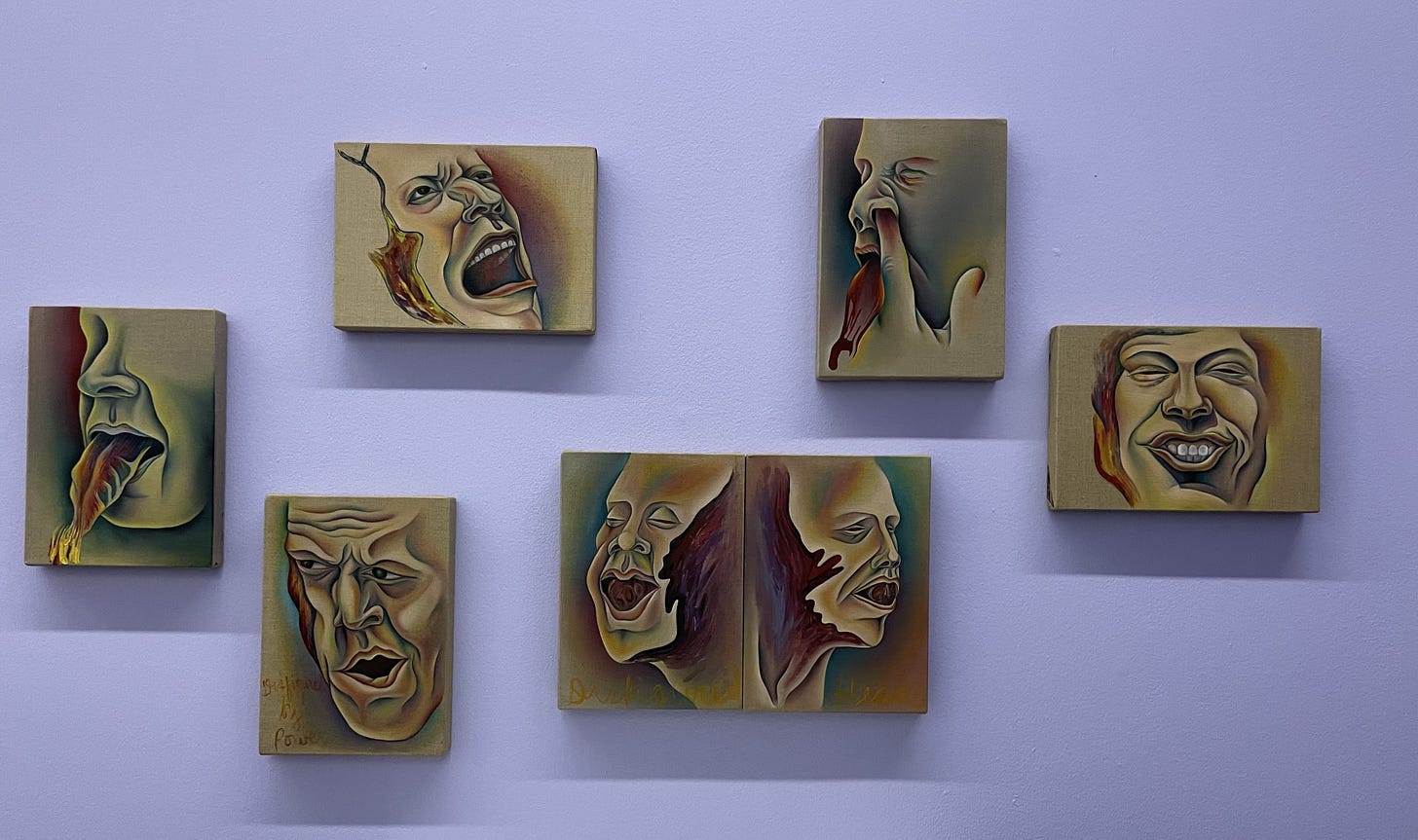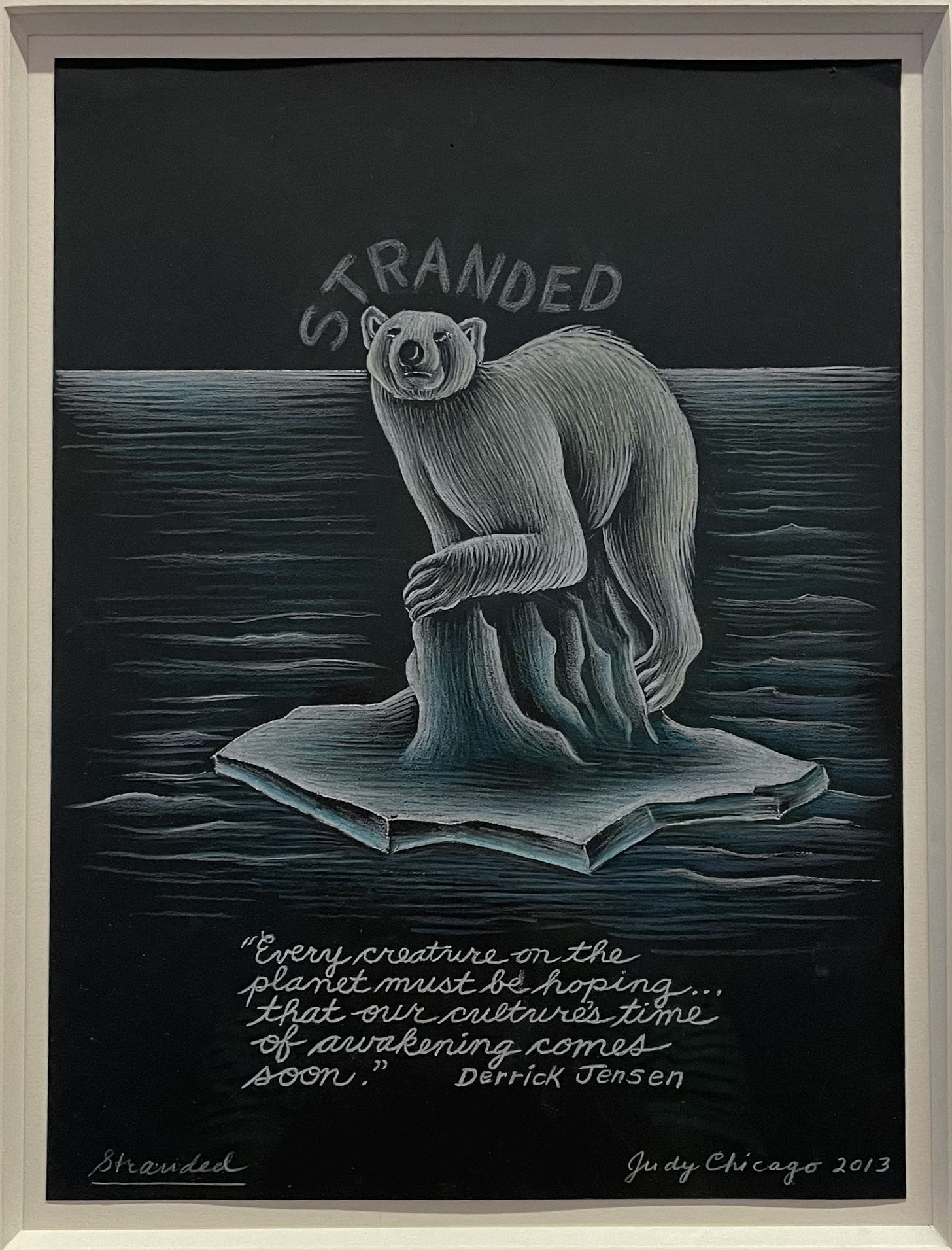When considering an artist who has challenged the male-dominated landscape of the art world and addressed the marginalisation of female artists, Judy Chicago stands out. Born in Chicago in 1939, she adopted her city's name after renouncing her paternal surname, Cohen, and her married surname in a symbolic act of breaking free from the confines of patriarchal naming conventions.
Throughout her six-decade career, Judy Chicago has challenged the male-dominated art world and pushed against artistic boundaries. Emerging in the late 1960s coincided with the rise of radical feminism, a time when American society was undergoing significant changes. Women were increasingly challenging traditional gender roles and societal expectations, demanding equal rights and opportunities in all aspects of life.
In 1972, Gloria Steinem and Dorothy Pitman Hughes launched Ms. Magazine, providing a platform for feminist voices and ideas. The following year, in 1973, the U.S. Supreme Court's Roe v. Wade decision recognised a constitutional right to abortion, marking a significant victory for the women's movement. As we all know, the Supreme Court overruled Roe v. Wade in June 2022, essentially ending the nearly fifty-year-old constitutional right to abortion. This reversal signals a worrying resurgence of patriarchal dominance in the United States. It places women’s rights under unprecedented threat, highlighting the importance of an active and responsive feminist movement.
The Dinner Party: Judy Chicago’s Monument to Women’s History
The late 1960s and 1970s were immensely productive for Judy Chicago, both intellectually and artistically. Driven by a desire to excavate women’s achievements and counteract their erasure from dominant narratives, she began developing The Dinner Party (1979), an installation that celebrates the achievements of women throughout history. It features a large triangular table with 39 place settings, each dedicated to a significant woman from history or mythology. Each setting includes porcelain painted plates placed on embroidered runners, a chalice, a napkin and cutlery. By incorporating these traditionally feminine crafts, Chicago elevates these often-overlooked art forms to the realm of high art. An additional 999 women's names are inscribed in gold on the Heritage Floor.
The Dinner Party has become an iconic work of feminist art and is widely studied in art history and women's studies courses. Like many, my introduction to Judy Chicago was through this piece.
Power Play: Unveiling Toxic Masculinity through Art
In the 1980s, through her series “Power Play”, Chicago explored how prevailing definitions of power have affected the world in general and men in particular. She examined toxic masculinity, the abuse of power, and the negative impacts of patriarchal structures. Rather than portraying the male figure as a hero in her own work, Chicago pulls back the curtain to reveal an uglier side of man that is alarming, revolting and frighteningly prescient. Seeing these works on display at the Serpentine exhibition last week, I was struck by the enduring relevance of Chicago's work to current conversations about masculinity, power dynamics, and gender roles.

Judy Chicago said of the series, “Male artists have represented women’s bodies for centuries; if they can do it with women, why can’t I do it with men? Power Play allowed me to process the diverse feelings I had accumulated in my years of dealing with men – including anger, particularly regarding what patriarchal values have done to the planet which is literally ‘driving the world to destruction’.”
Art as Activism: Response to Climate Change
This brings us to her work, The End: A Meditation on Death and Extinction (2015 – 2019), a powerful artistic statement about environmental destruction and species extinction. Judy Chicago teamed with Jane Fonda, art historian Hans Ulrich Obrist and artist Swoon to launch #CreateArtforEarth, a global creative response to the climate crisis. This initiative encourages people to use art in any form, as a tool to protest and raise awareness about the climate emergency.

Chicago’s 35 images are both beautiful and unsettling, aiming to provoke and challenge our views on nature and animals. Our current approach to the Earth often reduces it to a passive object, merely a resource for human consumption and exploitation, ignoring the intricate balance and inherent value of our planet's social-ecological systems. If we continue on this path of relentless exploitation and environmental destruction, we risk not only depleting vital resources but also irreversibly damaging the earth system that sustains us.
What if Women Ruled the world? Imagining a Feminist Future
Would there be less violence? Would we observe more justice in leadership? Would this mean the end of wars, armed conflicts and stalemates? Would there be more human rights? Would economic policy be more equitable and with greater concern for the environment and minorities? Or would there be the same obsession with profit, regardless of the human and environmental costs, and the same selfish anthropocentrism that has led us to our current impasses? Would we see more considered discussion and compromise? And, ultimately, would there be more care and empathy?

In 2022, Judy Chicago and Nadya Tolokonnikova, a founding member of the feminist art collective Pussy Riot, collaborated to create The ‘What if Women Ruled the World" project. This participatory art initiative aimed to bring together all those who share feminist values and make their voices heard at this urgent time for women’s rights. Inspired by Chicago's banner 'What if Women Ruled the World', created with Maria Grazia Chiuri for Dior's Spring Summer 2020 Haute Couture show, the project provoked discussions on feminism, gender roles, and the vision for a more equitable society. The responses from all over the world have been ‘digitally threaded’ together to create the ‘What if Women Ruled the World’ Participatory Quilt, a striking and powerful work of art.
Judy Chicago's work continues to inspire artists and activists alike, encouraging them to use art as a tool for social change, gender equality and environmental protection.
‘Judy Chicago: Revelations’ is on display at the Serpentine North from 23 May to 1 September 2024






